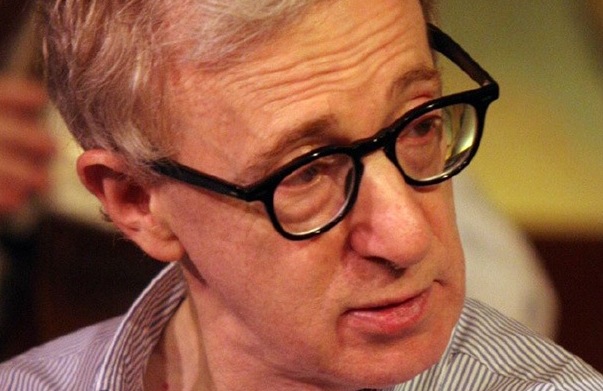Debating Allen: Separating art from artist
February 5, 2014

Dylan Farrow recently published an open letter in The New York Times that calls attention to sexual assault allegations she had made against her adoptive father Woody Allen. According to Farrow’s claims, Allen molested her when she was only 7 years old.
Allen, who vehemently denies the accusation, has long sparked controversy when it comes to romantic relationships and the revival of this sordid affair has caused a minor media frenzy. The heated responses from fans and colleagues alike raise the question — can we separate an artist’s lifestyle from his body of work?
Point: We can separate an artist from his work
Woody Allen is only the latest in a never-ending stream of artists who make questionable choices in their personal lives. I believe that if we were to blacklist every filmmaker, musician and actor who has stepped over the line of legal propriety, hardly anyone would be left in Hollywood’s inner circle.
This issue is rife with complication because of the modern access to celebrities’ day-to-day lives. Social media and online journalism prevent stars from escaping the limelight, and this reality is unfair. In my estimation, a true cinephile treats members of Hollywood’s A-list as artists first and humans second.
Not to say that fame excuses wrongdoing, but rather we need not condemn a film or an album or a novel simply because its creator has committed an offense.
Allen may or may not be a despicable person, but he definitely has made some of the best films released in the past half-century. To retroactively revile “Annie Hall” or “Manhattan” makes no sense. They are still splendid works of entertainment featuring timeless performances and hilarious writing. However much I might disapprove of Allen’s past actions, it does not take away from my enjoyment of his projects.
If we are being honest, almost everyone knows that Hollywood is full of adulterers and drug addicts — indeed, the whole world is full of such people. Yet some of these wrongdoers are accepted as treasures in the industry.
Kenneth Branagh cheated on Emma Thompson with Helena Bonham Carter, but they each have my highest respect and admiration as actors. Both Heath Ledger and Philip Seymour Hoffman likely passed away from overdosing on illegal drugs, and nevertheless their iconic appearances will go down in history as profound feats of acting. Michael Jackson faced a heap of accusations, including sexually abusing children, but he remains lauded as the King of Pop.
Art is in some ways a presentation of self — actors find a bit of themselves in their characters, writers put a bit of themselves in their scripts, musicians give a bit of themselves up on stage. Yet, for the most part, art becomes more anonymous than personal by affecting so many people.
When we watch Allen on a screen, we laugh at his one-liners and roll our eyes as he encounters various friends and adversaries. He is a character to us, a fun and fictionalized version of himself. We view other celebrities we see on television or read about in tabloids the same way.
True, we know more about celebrities’ life-altering mistakes than those of our own acquaintances, but they are far enough removed from us that we can set aside our moral judgment in favor of their entertainment value.
Clio McConnell is arts editor. Email her at [email protected].
Counterpoint: We cannot separate an artist from his work
Rightfully hailed as a Hollywood legend, Woody Allen has written, directed and starred in films for over 50 years. The man’s films, from his amateur work to his most recent masterpiece “Blue Jasmine,” are all recognized as gifts to the industry for their witty writing and skillful directing. Yet the current controversy surrounding Allen overshadows his societal contributions. Fans are forced to consider the possibility that Allen’s corruption as a man may trump his genius as an artist.
Allen is one of many celebrities who have had disturbing and very public pasts. The merits of R. Kelly, a celebrated musician with a smooth voice and catchy lyrics, were recently the topic of Internet discussion after Jessica Hopper published a full account of sexual assault allegations against the singer on Village Voice blog Sound of the City.
According to Hopper’s piece, Kelly has been accused of rape and other sex crimes with underage girls multiple times over the course of several years. He was also married to Aaliyah, who was 15 years old at the time. Although Kelly denies all assault accusations and has never been formally charged, the repugnant details are hard to argue with. Not to mention that listening to lyrics like, “Girl, you make me wanna get you pregnant,” becomes unbearable.
Celebrities’ unfavorable actions fall all over the spectrum, and it is unfair to group them into the same category. Issues such as adultery and drug use, while important, cannot be considered on the same level as rape and sexual assault. The former actions are traditionally frowned upon in society, and celebrities who partake in them face their share of flack from gossip magazines and websites, occasionally enduring worse, or even fatal, consequences. Many stars guilty of the latter also receive criticism in the media, but their crimes are ignored after the initial eruption — news of another movie or song release replaces stories about the alleged sexual assault.
It is tempting to separate the likes of Allen and Kelly from their art, to refuse to consider a work in the context of its creator’s sins because of their talent. I have tried to justify it to myself on many occasions because both Allen and Kelly have produced some of my favorite works in their respective fields.
However, we are not only dishonest with ourselves when we do that, we are also sending the message that bad behavior will likely be rewarded with more fame and fortune. Every time we pay to see an Allen flick or download a Kelly song, we praise the work, and thus indirectly tell victims that their attackers should not be punished. We are saying that we value art more than we value justice. And, most importantly, we implicitly tell rapists that their crimes are acceptable since they won’t face drastic consequences.
By continuing to support wrongdoers’ work, we allow criminals to think their actions are forgiven. Perhaps we, the fans, did forgive them and can now enjoy their work, but there are many victims who still dodge movie theaters and turn off the radio in order to avoid reliving the horror of their forgotten tragedies.
Tatiana Baez is an assistant managing editor. Email her at [email protected].



























































































































































